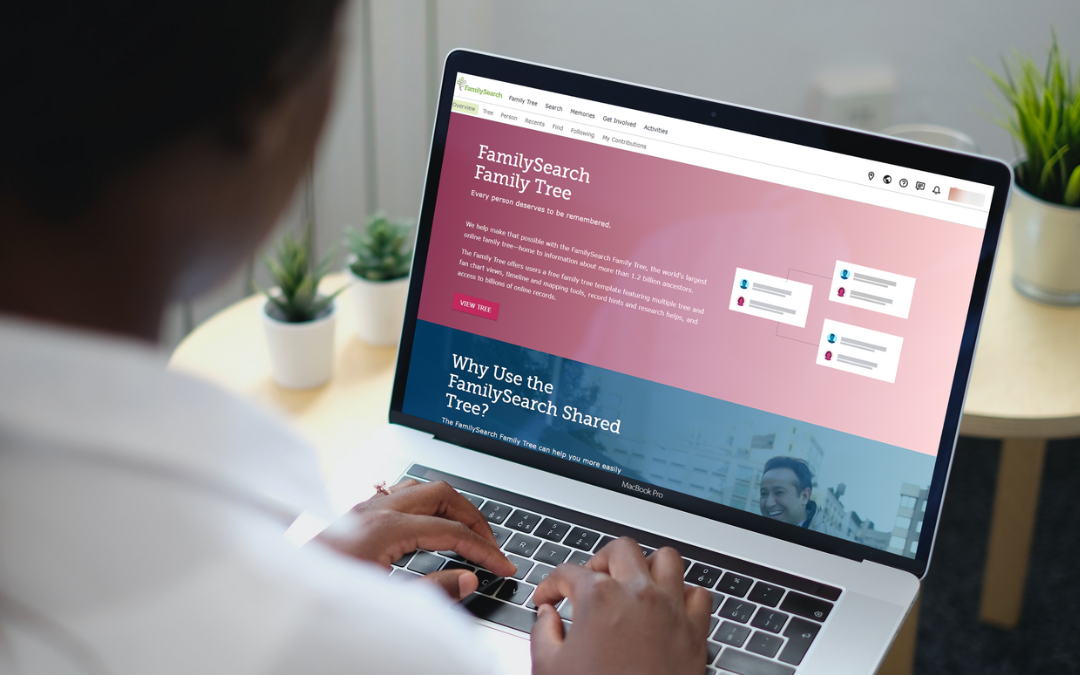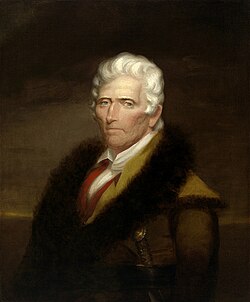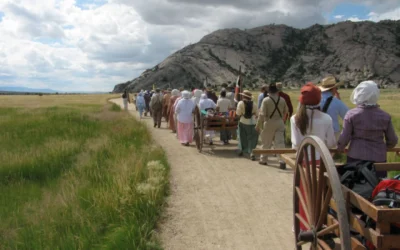African American genealogy offers unique challenges, but a basic framework of information gleaned from family traditions, forgotten cemeteries, or family Bibles provides African American researchers with a good starting point. Sources such as Black Genealogy by Charles Blockson and Black Genesis by James Rose and Alice Eicholz are available to assist beginners. Armed with this basic information, the researcher is ready to explore sources at several repositories.
African American Research at KDLA
The Kentucky Department for Libraries and Archives (KDLA) in Frankfort serves as a major repository of state and local government records that can be used for Kentucky genealogical research. From the ordeal of slavery to the Civil Rights era, the heritage of Kentuckians of African American descent is reflected in the state’s public records.
The following overview of state and local records available for public use in the department’s Archives Research Room suggests specific examples from these rich sources for those tracing their African American ancestry.
Unquestionably, the most significant challenge of African American genealogical research stems from the institution of slavery. By 1860, over 95% of Kentucky’s black population was held in bondage. There was a small population of free blacks living in Kentucky prior to the Civil War, primarily in urban areas. Federal census records from 1790 to 1860 document this population, as free blacks were recorded by households as were whites.
While the 1850 and 1860 Kentucky Slave Schedules enumerated the state’s enslaved population, these records generally provide the name of the owner. Organized by county, they provide only the age, sex, and color of the enslaved themselves. Researchers may discover that a free ancestor was enumerated as a slave owner.
Although free blacks were permitted to purchase family members, Kentucky law prohibited African Americans from owning an enslaved person as property for personal gain. Kentucky’s earliest birth and death records (1852-1862) contain information on both the free and slave populations. Organized by county, birth records only identify the mothers of children who were born enslaved. The name of the child’s father was not required by law. Both birth and death records identify the owner of the enslaved person.
Understanding Kentucky Laws Related to Slavery
The key to working with sources prior to 1865 lies in the following excerpt from the Kentucky Slave Code, “Slaves shall be deemed…personal estate.” Kentucky’s public records reflect the terrible reality that under the institution of slavery, African Americans were legally classified as property. For genealogists, this means that records relating to the slave-owner’s property become the focus of their efforts.
County deed books frequently contain records of [enslaved people] sales, “Deeds of Gift”, “Slave Hirings”, the “mortgage” of slave property, and the “manumission” or emancipation of the enslaved people. Probate records such as wills, inventories, and settlements also provide lists of those in bondage who were accounted for as part of an estate settlement. ‘Records of Importation of Slaves” into Kentucky, “Lists of Slaves” that enlisted in the Union Army, or ‘Manumission Reports” represent other county records pertaining to slavery.
Although a required record for County Clerks, “Lists of Dower Slaves” apparently represent those scarce sources of rare value. Any owner holding a life estate in an enslaved person was required to submit an annual list to the county clerk “of the names, sex, and ages of such slaves.”
A Meade County Lite Estate book (see References) for the years 1850 through 1865 virtually serves as a year-by-year chronicle for many enslaved families. In 1851, Elizabeth Woolfork, provided the following list of property “held as dower in slaves from Joseph F. Woolfork, Dec.”: Milly, age 55; Luke, age 39; John, age 27; Ben, age 25; Nelly, age 23; Sharlot, age 2; and Charles, age 76. A study of the annual lists to 1865 eventually reveals the passing of “old Charles”, the births of Delila and Amanda, and the eventual death of their mother, Nelly, during the Civil War.
Military Records
Kentucky stoutly resisted Federal interference with slavery until Congress ratified the Thirteenth Amendment in December 1865. Since the Emancipation Proclamation did not apply to neutral Kentucky, the only route to freedom for African Americans, besides flight, was military service. Over 23,000 Kentucky blacks fought for freedom with the US Colored Troops during the conflict.
While the State Archives has some muster rolls in unprocessed collections, the Military Records and Research Library in Frankfort, has a wealth of information about these units.
Regimental records may include rosters, descriptive lists, and muster rolls that not only provide the age, residence, and physical description of volunteers, but whether he was enslaved or free-born when he enlisted. These sources might also include the names of owners and the wives of those volunteers seeking refuge with the military authorities.
County Vital Records
Local government records from Kentucky’s 120 counties document the transition from slavery to freedom. Created by an act of the legislature in 1866, Freedmen’s Marriage Registers legalized marital unions that existed prior to 1865. While slavery posed a constant threat to the black family unit, some marriages predated emancipation by decades.
Other transitional sources include Freedmen’s Indentures of Apprenticeships Books, a county record that probably reflects efforts to control former slaves. Many black children were apprenticed to whites after the war if the county court determined that they were without a guardian or if the parents were too impoverished or allegedly too irresponsible to provide proper care. Parents or other relatives fought this attempt to indenture their children, working through the Freedmen’s Bureau and the courts to regain them. Such records provide researchers with the child’s age and the name of the individual appointed by the court to teach them a trade.
Public records also reflect the harsh reality of race relations in Kentucky after the Civil War. Marriage records, tax lists, and school census records were in most cases maintained separately by local officials according to race. Marriage records were maintained separately by the county clerk’s office well into the twentieth century.
Judicial Records: Civil and Criminal
Judicial records, both civil and criminal, are also excellent genealogical sources. Civil cases at the Circuit Court level may involve legal disputes over the inheritance and/or legal ownership of “slave property“ or complaints of non-payment and of damages incurred through the injury or abuse of leased slaves.
Many of these sources will provide the ages, physical descriptions, and given names of African Americans held enslaved. Parentage and other information about enslaved families may be revealed that will enable a researcher to link several generations.
Although most African Americans did not adopt surnames until after the Civil War, the identification of the former owner might provide a clue. It was probably no coincidence that James Howard, a freedman, lived next to Cornelius Howard, a well-to-do white resident of Elliott County in 1870. While identified through local tradition as one of “Neal Howard’s slaves“, court records confirmed the story, identifying “Neal Howard’s Black Jim” as a participant in forays by local Unionists against his master’s rebel neighbors in old Morgan County.
After 1865, judicial records may contain testimony from individual African Americans. Other civil and criminal case files from the Reconstruction era may deal with protection under the Fourteenth and Fifteenth Amendments.
Other Records
Other primary genealogical sources, such as Kentucky’s Vital Statistics (1911-present) and Federal Census records (1870-1950), are extremely valuable in providing links for the present generations with their forebears. The 1870 Federal Census for Boyd County lists two freedmen, Zachariah and Rueben Bolt, as residents of Ashland and Catlettsburg, respectively. The 1860 Slave Schedule for Boyd, one of the few counties that provides the names of both owners and the enslaved persons, revealed that both men were once the “property” of Major Isaac Bolt, a prominent local official.
Even if their names had not been given in this record, the Major’s will served as another clue to ownership, and revealed that they were inherited by one of his children on the eve of the Civil War. This illustrates how researchers might break through the barriers created by slavery. A search of additional records relating to these owners could well provide links with earlier generations.
These sources represent only a portion of the records available at the KDLA in the Archives Research Room.
References
- Black Roots : a beginner’s guide to tracing the African American family tree, Tony Burroughs
- Life Estates (6405 C Meade County, County Clerk Records. A1976-001 Marriage Records. Box 129, Location A34 / J2)
- Kentucky Laws Concerning the Emancipation of Freedom of Slaves, Post, Filson Historic Club Monthly.
Editor’s Notes
- This post appeared in the Bluegrass Roots Magazine (Winter 2003). The author was not listed but it was someone familiar with the KDLA, Kentucky History, and genealogy.
- We made an effort to change “slave” to “enslaved” but left anything in quotes or what would lead to a document as it was.
- Thanks to KDLA archivist and KYGS member Rusty Heckaman for reviewing this post and making updates.
- Thanks to KYGS member Cynthia Maharrey for reviewing the content and providing some additional resources.





